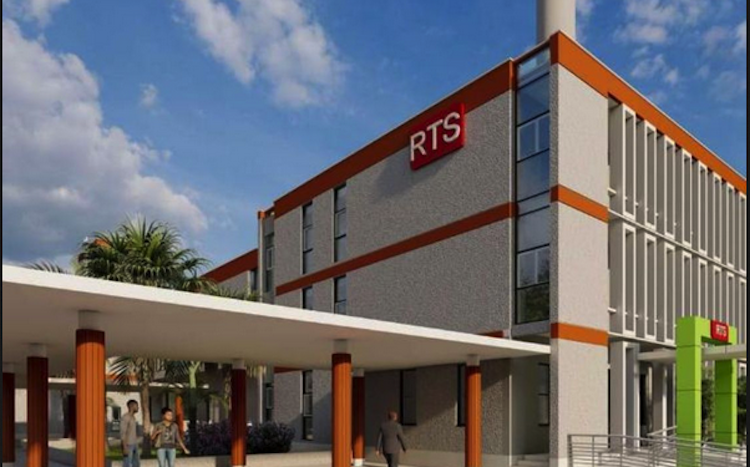Gambiaj.com – DAKAR, Senegal – In an unprecedented turn of events, Senegal’s national broadcaster, Radiotélévision Sénégalaise (RTS), failed to air its flagship 8 p.m. news broadcast this Tuesday evening, citing technical difficulties. The disruption, lasting until after 10 p.m., saw the state channel fill the prime time slot with archive documentaries and major reports.
RTS issued an apology via teletext, explaining that a “major technical issue” with their sound console and server had rendered the broadcast impossible. Despite resolving the issue around 9:30 p.m., the channel did not resume its news bulletin.
However, the timing of this technical failure coincided with a day of escalating tensions at RTS. Workers, donning red armbands, held a general assembly where they resolved to take legal action against the newly appointed general director, Pape Alé Niang.
The employees are contesting Niang’s decision to suspend financial and motivational benefits that were granted by the former DG Racine Talla, just before his departure following the March 2024 presidential election.
Mama Moussa Niang, coordinator of the college of delegates, criticized the new director’s approach, accusing him of undermining worker’s rights and agreements sealed by the state. He highlighted several contentious moves by Niang, including the cessation of the Tabaski advance, the annual common fund disbursement in June, and the termination of several fixed-term contracts without valid reasons.
The new CEO’s justification for these cuts—rationalizing state spending—was dismissed by Mama Moussa Niang as unfounded. He argued that the company agreement, which has been in place for 20 years and renewed every decade, was already accounted for in the national budget and therefore sustainable.
The workers have vowed to challenge these decisions in court, setting the stage for a prolonged conflict at the national broadcaster. As RTS navigates these turbulent waters, viewers and employees alike await resolution, uncertain if the recent technical glitch was merely a prelude to deeper institutional issues.










